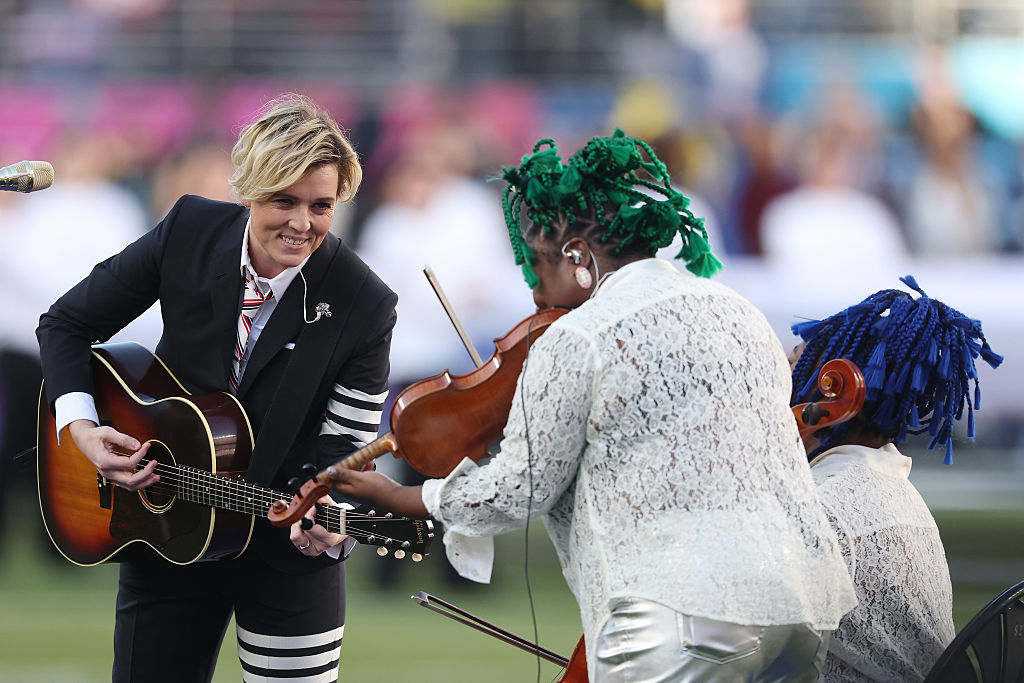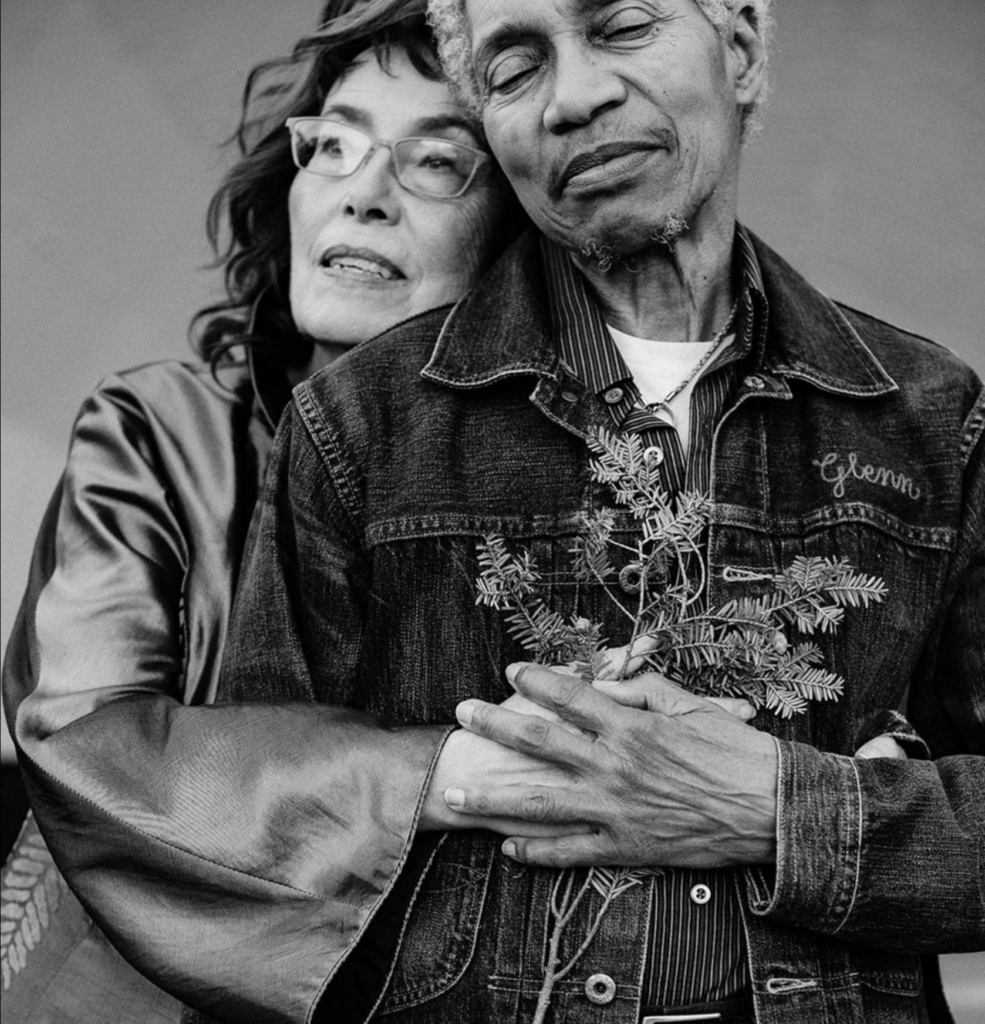LGBTQ+ Individuals Are Under Attack In Georgia. So Is Democracy.

Georgia has a long and sordid history of violating LGBTQ+ rights. It took an attack on the press for us to finally pay attention.
“They were hunting us down in the streets,” Giorgi Tabagari, the co-founder of Tbilisi Pride, recalls, when we spoke by Zoom in late July of last year. Just a few weeks earlier, on July 5, a group of anti-LGBTQ+ counter protesters made headlines around the world after it stormed the offices of Tbilisi Pride. The rioters quickly laid siege to the building both inside and out, ripping down rainbow flags and wreaking the havoc that only angry mobs can. Then, the rioters turned their anger onto the streets, and the reporters gathered to cover the event. An estimated 50 to 60 individuals, most of them reporters, were assaulted during the attack.
Though this event garnered worldwide attention, activists like Tabagari have criticized the Georgian government for failing to protect LGBTQ+ rights for years. The anti-LGBTQ+ riot that erupted on July 5 was just one event in a long history of violence inflicted on Georgia’s LGBTQ+ community. Such occurrences are so common that ahead of the 2021 Pride events, the country’s interior ministry called on Tbilisi Pride to cancel the event, citing fears of violence, effectively putting the onus of responsibility on the Pride organizers rather than the anti-LGBTQ+ mob.
On the surface, Georgia, a tiny country nestled between Turkey, Russia and the Black Sea, has the framework to safeguard LGBTQ+ individuals. Homosexuality wasn’t decriminalized until 2000, nearly ten years after the country declared its independence from the Soviet Union, but in recent years the government has enacted more expansive protections for LGBTQ+ individuals. In 2014, Parliament passed a law on the Elimination of All Forms of Discrimination, which explicitly protects individuals from discrimination on the basis of sexual orientation and identity. A Human Rights Protection Department was created within the Ministry of the Interior in 2018, and the Public Defender’s Office, known as the Ombudsman, now monitors the implementation of anti-discrimination laws across the government sector. Non-profit advocacy organizations also work with government agencies to provide sensitivity training.
However, while measures to protect LGBTQ+ individuals exist, they are not well enforced and do little to improve the lives of LGBTQ+ persons, who remain frequent targets of discrimination. A mandate published by the United Nations Human Rights Office of the High Commission from 2018 reports that only 11% of the cases involving possible discrimination received by the Public Defender’s Office related to sexual orientation and gender identity, with discrimination found in only a few of the cases. “This must be put into perspective,” the report notes, “in relation to the fact that the LGBT community is one of the most discriminated groups in the country.”
Conservative attitudes toward sexual orientation and gender identity prevail across much of Eastern Europe, with Georgia having perhaps some of the most conservative. Data collected from the Pew Research Center in 2017 found that that 93% of Georgian residents believe that homosexual behavior should not be accepted socially, with only 3% supporting same sex marriage. This disapproval rate was among the highest of the 18 countries surveyed, second only to Armenia (97%) and ahead of Moldova (92%), and both Russia and Ukraine (86%).
These attitudes can be traced in part to lingering anti-homosexual sentiment left over from the country’s days in the Soviet Union, which had criminalized homosexuality across its territories, but also to the influence of the Eastern Orthodox Church. The Eastern church is more staunchly conservative with regards to sexual orientation and gender identity than its Western counterpart, and in Georgia it has been a leading force opposing LGBTQ+ rights.
As the U.N. mandate notes, anti-LGBTQ+ sentiments harbored by a majority of the Georgian population “are in turn [fueled] and reinforced by the church, tolerated and at times sponsored by politicians and governmental or law enforcement agents, and replicated by mass and social media.” As a result, “This nefarious energy has at the receiving end one of the most disenfranchised, vilified and vulnerable communities in Georgia. The societal goal, it appears, is to create the notion that Georgia has a homogenous population composed exclusively of heterosexual cisgender persons.”
These entrenched values make societal change more difficult to come by than legislative change. Even with protections in place, social attitudes influence how thoroughly anti-discrimination laws are enforced. Advocates say that crimes against LGBTQ+ individuals go under-reported because LGBTQ+ individuals don’t trust law enforcement officials to take them seriously, or to treat them fairly.
Keti Bakhtadze, a strategic litigation lawyer with the advocacy organization, Women’s Initiatives Supporting Group (WISG), says that although there has been an increase in reports of anti-LGBTQ+ incidents in Georgia since the founding of the Human Rights Department, most victims are still reluctant to report their abuse to authorities. In 2018 she recalls how she worked on only one formal case at WISG involving a victim of sexual violence who subsequently had information about her sexuality leaked to her family by an attending police officer. Bakhtadze had provided consultation on 10 additional cases that had similar factual evidence, but which were never formally filed.
“The community members who are living in Georgia avoid [reporting] this type of incident to police officers or the state inspector or the prosecutor’s office,” she tells GO, which for agencies like WISG, makes tracking crimes committed against the LGBTQ+ difficult. Victims refrain from filing reports “because they are afraid, especially trans sex workers.”
Ekaterine Skhiladze, Deputy Public Defender of Georgia, also notes the increase of reported crimes against the LGBTQ+ since anti-discriminatory measures were put in place, but tells GO that “It’s not a high number.” One major problem is that LGBTQ+ individuals who report crimes are often victims of secondary physical or psychological discrimination from law enforcement officers to whom they report.
“We strongly believe that still we have a problem in our law enforcement agencies and that’s why the LGBTI community members when they are victims of violence … they are not applying for support, are not cooperating with law enforcement agencies,” she says.
In a 2021 report published by the International Lesbian, Gay, Bisexual, Trans, and Intersex Association (ILGA), data provided by WISG and the UN found multiple incidents of secondary discrimination, specifically with regards to transgender individuals. In 2016, WISG reported six cases of trans women who were arrested under Georgia’s Articles 166 and 173 — which cover disorderly conduct and non-compliance with orders from law enforcement officials — after going to police to report hate crimes. Few who are thus detained file reports of abuse, for fear of further retaliation from law enforcement.
Nugzar Tatishvili, a transwoman and founder of Georgia’s Centre for Transgender Women, tells GO via email that she has allegedly experienced such treatment at the hands of police, and claims to have been arrested six times after appealing for help. Following the complaint, Tatishvili says that officers would write statements claiming that she had verbally abused them, resulting in a 24-hour detainment.
“Because of this, transgender women have less trust in the police,” says Tatishvili, who is now living as a political refugee in Germany. “In many cases, it makes no sense to go to the police.”
In a special report on combating discrimination released in 2020, the Public Defender’s office of Georgia refers to a series of attacks perpetrated by protesters outside of Tbilisi Pride’s offices in June of that year. Tbilisi Pride informed the Public Defender’s office that police on the scene were unresponsive as the counter protesters yelled verbal assaults and obscenities, removed the Pride flag, and pelted the building with eggs.
The Public Defender’s report notes that the Ministry of Internal Affairs (MIA), the agency responsible for national law enforcement, claimed to have launched investigations into the incident, and that four individuals were found guilty of offenses related to the vandalism. However, the report concludes that state institutions have done little to combat discrimination against vulnerable groups, including the LGBTQ+ community, and have failed to establish a consistent framework of policies for developing social equity.
Advocates have made progress in some areas, with state actors who are willing to work more closely with the LGBTQ+ community. Certain government agencies, including the MIA, are drafting guidelines and conducting sensitivity training with the help of advocates like Bakhtadze, who coordinates such training on behalf of the WISG.
Cases tried in the European Court of Human Rights, and which deliver verdicts in favor of LGBTQ+ plaintiffs, also provide an impetus for the Georgian government to act, if only to comply with European standards. Such rulings, Bakhtadze says, are “good mechanisms of pressure for our government to change the situation.”
But the court system works slowly, and decisions can take years to come down. Within Georgia’s current state-sanctioned framework, more problems than solutions exist for LGBTQ+ individuals. For Deputy Public Defender Skhiladze, perhaps one of the biggest challenges facing the LGBTQ+ community in Georgia is getting state agencies to implement the changes recommended by the Public Defender’s office. For example, the department is responsible for making yearly reports to the country’s Parliament, but Parliament officials might not pass these recommendations along to state agencies. Or agencies might ignore recommendations made by the department directly to them. “The first difficulty is that their cooperation and coordination among the state actors is less organized, less productive,” with regards to LGBTQ+ issues, she says.
Additionally, the lack of response due to the missing investigative framework may encourage others to commit acts of harassment, violence, and discrimination, believing that they, too, will be immune from prosecution or punishment. And for the LGBTQ+ population, incidents like the one that occurred on July 5 are yet another barrier between them and their right to be protected from violence, harassment, and discrimination.
***
When looking at the history of LGBTQ+ demonstrations in Georgia, the events of July 5 2021 unfortunately come as no surprise. On May 17, 2012, LGBTQ+ organizations staged their first publicly announced demonstration for International Day Against Homophobia, Transphobia, and Biphobia (IDAHO). The demonstrators were attacked and assaulted by right-wing groups, organized with the help of the Eastern Orthodox Church.
Following the events of May 2012, LGBTQ+ rights group Identoba, along with other plaintiffs, filed suit against Georgia in the European Court of Human Rights. The suit alleged that the state had failed to uphold demonstrators’ right to free assembly and had failed to protect them from anti-discriminatory violence, among other allegations. In 2015, the court ruled that law enforcement officers had failed in their obligation to protect demonstrators, and subsequently failed in their investigation following the attacks.
The events at IDAHO demonstrations the following year, in 2013, were even more trying. In the days leading up to May 17, right-wing organizers and members of the Orthodox church announced plans to hold a “prayer rally” as a means of suppressing the IDAHO demonstration. Despite the fact that the plans were broadcast on both news and social media – drawing between 35-40,000 counter protesters to downtown Tbilisi on May 17 – police dispatched to maintain the peace were unprepared, or even unwilling, to protect LGBTQ+ demonstrators from the mob.
The events were “traumatic,” says Nattan Guliashvili, the head of media and communications with WISG. Law enforcement coordinating with LGBTQ+ organizations prior to the event “promised that, ‘Okay, we’re going to keep you safe, and we will do anything,’ but this actually didn’t really happen,” she tells GO. When faced with the mob, allegedly “police just could not or did not really do this.”
The authorities’ failings in 2013 are outlined in a ruling from the European Court of Human Rights, issued on December 16, 2021, on behalf of a case filed by WISG, Identoba, and a number of private individuals who alleged the state failed to protect the safety and right to assembly of the LGBTQ+ demonstrators. Among the more salient details, the report identifies how authorities did not dispatch riot control officers despite the fact that prayer rally organizers advertised the event well in advance, and had amassed a large crowd in Tbilisi’s Pushkin Square, hours before LGBTQ+ demonstrators were to gather there.
The court also relied on video provided by independent journalists which shed further light on law enforcement activities. The most damning video evidence shows prayer rally organizers walking through cordons to speak with state officials. As stated in the court’s ruling, prayer rally organizers can be heard imploring officials not to let the IDAHO demonstration proceed, as it would cause a conflict with the prayer rally, with some priests warning that “people might get killed.” Another priest is heard telling the Deputy Minister that the clergy would resort to “civil disobedience” and would call on the help of the Georgian army if the Ministry allowed the IDAHO demonstration to go forward. Moments later, the video captures anti-LGBTQ+ counter protesters breaking through the cordons without police resistance, and in some instances with the aid of officers, who remove the cordons for them to pass through.
Additional footage shows officers on the scene discussing an order from the head of the State Security Agency, under the direct authority of the interior ministry, calling on the removal of cordons separating the LGBTQ+ demonstrators from the counter protesters.
The court ruled in favor of the plaintiffs, finding “that the authorities had failed to take measures to protect the LGBT demonstrators from the mob, despite being aware of the risks associated with the event. There was furthermore evidence,” it added, “of official connivance in the acts of violence and underlying prejudice.”
The court similarly found that a subsequent investigation by the MIA into the events of 2013, which resulted in two court cases, was inadequate. One of these cases resulted in the acquittal of four counter protesters – out of the estimated 35-40,000 participants – in part because the state had failed to pursue critical evidence. The other case remains pending in the Georgian court system.
The events were so traumatic that “many community members or activists even decided to just leave,” says Guliashvili. “They realized that there was no state that was going to protect them.”
The following year, the Georgian Orthodox Church declared May 17 “Family Purity Day.”
***
Since 2013, the government has done little to change its response to anti-LGBTQ+ agitators. If anything, officials have instead clamped down on LGBTQ+ demonstrators. Two recent events, both highlighted by the Public Defender in a 2021 report on the obligations of law enforcement to protect vulnerable groups, illustrate how.
The first occurred at a soccer match on September 9, 2018. At the match, Georgian team captain, Guram Kashia, was to receive the Equal Game Award from the Union of European Football Associations (UEFA) for his support for LGBTQ+ equality. After a right-wing group threatened violence against possible LGBTQ+ demonstrators who might appear at the game, the MIA instructed police to confiscate LGBTQ+ paraphernalia from attendees, or to ban attendees who carried such paraphernalia, in order to avoid unrest.
The second event occurred in June of 2019. Tbilisi Pride had organized a rally for June 14, ahead of a five-day Pride event series scheduled for the following week. Demonstrators were given a designated spot outside government administrative offices in Tbilisi, but when they arrived they discovered that the spot had already been occupied by anti-LGBTQ+ counter protesters. In what would prove to be a precursor of the events of 2021, the counter protesters proceeded to verbally and physically assault LGBTQ+ demonstrators and journalists on the scene.
The following week, The Washington Blade reports that representatives from the MIA met with Pride organizers and the Public Defender requesting that Tbilisi Pride suspend any further planned activities. The request came amid growing threats from right wing groups calling for additional counter protests should Pride events proceed as scheduled. Organizers did cancel Pride that year, although not by the request of MIA; instead, Tabagari, the co-founder of Tbilisi Pride, announced on Twitter organizers canceled the event so that demonstrators could instead join another protest happening that day.
But official calls to end LGBTQ+ demonstrations for fears of violence have only emboldened right-wing extremists to call for such violence, as organizers have learned their methods work. And their message is relatively simple: they refuse to let LGBTQ+ groups claim any visible space. As the Public Defender reports, in the days leading up to the September 9 soccer game, Sandro Bregadze, leader of the conservative group Georgian March, posted a message on Facebook, calling “on all Georgia to protest against the celebration of the sin of Sodom” should LGBTQ+ individuals be permitted to display rainbow or Pride paraphernalia.
His tactics were echoed by Levan Vasadze, a Georgian businessman and right-wing agitator, in the days leading up to a scheduled Pride parade on June 22, 2019. (Vasadze had previously been an organizer of counter protests at the LGBTQ+ rally on June 14 of that year.) His strategy was a bit more pointed, as detailed by the Public Defender. In a series of rallies, Vasadze threatened both LGBTQ+ demonstrators and police forces, should they offer protection to the demonstrators. He even promised that his followers would form “people’s detachments” that would patrol Tbilisi’s streets if LGBTQ+ events were allowed to proceed. When the MIA refused to offer protection to the Pride demonstrators, Vasadze disbanded the people’s detachments.
The July 5 attack on the Pride events in 2021 was the inevitable culmination of this cyclical suppression and violence, left unchecked and allowed to intensify.
Even Vasadze was up to old tricks. On June 15, he issued an ultimatum to the government, saying that he would give it until June 25 to cancel the event. “[O]therwise, people will react to the government’s decision,” he said in a statement, adding, “Through the cancellation of the events the government will prevent [destabilization].”
In the hours leading up to the scheduled Pride event on July 5, a coalition of right-wing organizations assembled outside of the country’s parliament building, where they tore down an encampment of opposition party demonstrators, who were themselves protesting the results of a 2020 election that had brought the conservative Georgian Dream party back into power. The counter protesters occupied a spot near the metro station on Rustaveli Avenue in central Tbilisi, along the Pride march’s projected route, presumably with the intention of blocking the march. But they then turned their attention to the offices of Tbilisi Pride, as well as those of the Shame Movement, an opposition group critical of the Georgian Dream party which was also taking part in the Pride events.
“We had this expectation that something horrible could happen,” says David Kakhaberi, the Executive Director of Equality Movement, the country’s largest LGBTQ+ advocacy organization, who witnessed the attack. Still, he said he couldn’t imagine just how horrible things would get. In addition to the breach of Tbilisi Pride’s office — the first time counter protesters were successful in storming the building — “it was the first time in the history of Georgia that they were after journalists and media,” he tells GO.
Although the Georgian MIA did not return GO’s request for comment, in a July press brief Deputy Minister Aleksandre Darakhvelidze defended the actions of the police, saying that “they managed to control the masses for about six hours, arrested the aggressive groups and ensured the safety of the protesters,” according to the government-run, English-language news outlet Agenda GE. He also added that “the officials from Tbilisi Pride, as well as non-governmental [organizations], refused to cooperate with the police during the investigation.”
As of December 9, the General Prosecutor’s Office of Georgia claims to have charged 31 individuals with intolerance on the grounds of sexual orientation or gender identity; 28 were charged with unlawful interference with journalists, including acts of violence, while three were charged with vandalizing Tbilisi Pride offices, according to information shared with GO from Deputy Public Defender Skhiladze.
The fact that counter protesters targeted journalists added another layer of urgency to the problem. The attack on members of the press, as well as on the political opposition parties, show that violence rarely has a singular target: anyone threatening said ideal — whether directly opposed or simply in a position to share information — will find themselves in the crosshairs.
Ironically, the attack on the press, which yielded a higher report of casualties than previous counter protests, eclipsed the fact that July 5 marked yet another assault on the LGBTQ+ community. “LGBT issues are lost,” says Kakhaberi, noting how in the immediate aftermath, the focus lay on the fact that media personnel were attacked. “But no one says why it happened … that this is a result of homophobia.”
While freedom of expression is a major problem facing the LGBTQ+ community in Georgia, it’s symptomatic of homophobia that makes everyday life a challenge. And while groups like Equality Movement are still working with the Department of Human Rights within the MIA, the current government, itself, “has absolutely no policy right now” with regards to LGBTQ+ rights Kakhaberi says. (It’s worth noting that the current prime minister, Irakli Garibashvili, had been the MIA’s chief minister at the time of the 2013 anti-LGBTQ+ prayer rally).
For Tabagari, the co-founder of Tbilisi Pride – who, since our interview, has stepped down as the organization’s director – the July 5 attack illustrates what he calls a “democratic backslide” for the country. He also believes that now more people are starting to get angry with the country’s current system, and that perhaps they will now push for change.
LGBTQ+ individuals aren’t the only ones who need to fight for their rights. It’s “a fight for literally everyone,” he says.
But with the current government, he is doubtful that things will change. Those present on July 5 witnessed, “the failed state,” he tells me. At first, the statement seemed hyperbolic, but not when understood through the lens of recent history. The July 5 attacks were a logical culmination of a culture that has for years denied LGBTQ+ individuals the right to exist, and an example of what happens when a mob is allowed consistently to exert this status quo by force.
There are some reasons for optimism. That 31 individuals have been charged for their roles in the July 5 violence shows an uptick in cases prosecuted than in previous years – a possible sign that more government officials are starting to take anti-LGBTQ+ violence more seriously. How these cases play out in court, however, remains to be seen.
This article refers to Georgia’s interior ministry as the Ministry of Internal Affairs (MIA) or as the interior ministry, although in some official English-language documentation, such as the record from the European Court of Human Rights, it is referred to as the Ministry of the Interior.
Although International Day Against Homophobia, Transphobia, and Biphobia can be denoted with different acronyms, this document uses IDAHO for consistency.
The Ministry of Internal Affairs, and the Human Rights Department, did not respond to GO Magazine’s request for comments on this story.












